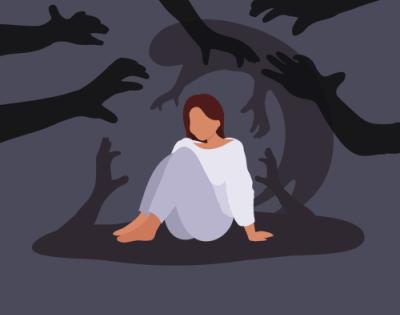
What Is PTSD?
Post-Traumatic Stress Disorder (PTSD) is a mental health condition that can develop after someone experiences or witnesses a traumatic event such as combat or war, physical or sexual assault, serious accidents, natural disasters, or the sudden loss of a loved one. For a PTSD diagnosis, symptoms must persist for more than a month and cause significant distress or interfere with daily life. A mental health professional typically makes the diagnosis based on DSM-5 criteria.
PTSD symptoms fall into four main categories:
-
Intrusion: Re-experiencing the trauma through flashbacks or nightmares
-
Avoidance: Staying away from reminders of the trauma
-
Negative changes in mood and thinking: Feeling numb, hopeless, or disconnected
-
Changes in arousal and reactivity: Trouble sleeping, anger, hypervigilance, or being easily startled
Common Misconceptions About PTSD
-
“Only soldiers or veterans get PTSD.”
While military members are at higher risk, anyone can develop PTSD. This includes survivors of abuse, accidents, natural disasters, medical trauma, or those who’ve witnessed violence. -
“PTSD happens immediately after the trauma.”
Not always. Symptoms can show up weeks, months, or even years later. Delayed PTSD is real and valid. -
“People with PTSD are weak.”
PTSD is not a weakness—it’s a human response to extreme stress. Seeking help takes strength. -
“People with PTSD are dangerous or violent.”
This stereotype is harmful and largely fueled by media. Most individuals with PTSD are not violent and are more likely to hurt themselves than others. -
“You can’t get PTSD unless you were physically harmed.”
Emotional or psychological trauma—like witnessing a traumatic event—can also lead to PTSD. First responders and those exposed to distressing details repeatedly are at risk too. -
“PTSD is permanent.”
PTSD is treatable. Many people recover fully or significantly with therapy, medication, and support. -
“Everyone who experiences trauma will get PTSD.”
Not true. Many people have short-term stress reactions that resolve naturally without becoming chronic. -
“Talking about trauma always makes it worse.”
In a safe, therapeutic setting, talking about trauma can be one of the most healing steps you can take.
What To Do If You Think You Might Have PTSD
Learn the Signs
Common PTSD symptoms include:
-
Flashbacks, nightmares, or intrusive thoughts
-
Avoiding places or people that remind you of the trauma
-
Feeling numb, detached, anxious, or guilty
-
Trouble sleeping, difficulty concentrating, or being on edge
If these symptoms last more than a month and are affecting your daily life, PTSD could be the cause.
Reach Out for Professional Help

PTSD is a medical condition that can be diagnosed and treated by a mental health professional, such as a psychologist, psychiatrist, or licensed counselor. If you think you may be experiencing symptoms of PTSD, you can start by talking to your primary care provider for a referral, or reach out directly to us. The Village has a variety of trained Clinicians who specialize in trauma, and can help you find the support and treatment you need.
Don’t Self-Diagnose or Self-Medicate
Avoiding the issue, turning to substances, or isolating from others can make PTSD symptoms worse over time. While it may feel easier to push through on your own, these coping mechanisms often delay healing and add new challenges. It’s important not to self-diagnose or ignore what you’re experiencing.
Explore Treatment Options
Effective PTSD treatments include:
-
Trauma-focused therapy (like Cognitive Behavioral Therapy or EMDR)
-
Medications (often SSRIs or other antidepressants)
-
Support groups for people who’ve experienced trauma
There’s no one-size-fits-all solution—your therapist will work with you to find what fits best.
Practice Self-Care
While professional help is vital, daily habits can also support healing:
-
Get regular sleep and meals
-
Try grounding techniques or mindfulness practices
-
Avoid alcohol and drugs
-
Stay connected to supportive people in your life
Remember You’re Not Alone
Millions of people live with PTSD. Many recover with time, care, and the right treatment. PTSD is not a sign of weakness, and it’s not your fault. It’s a natural response to trauma. With support and professional help, healing is possible. You don’t have to go it alone.